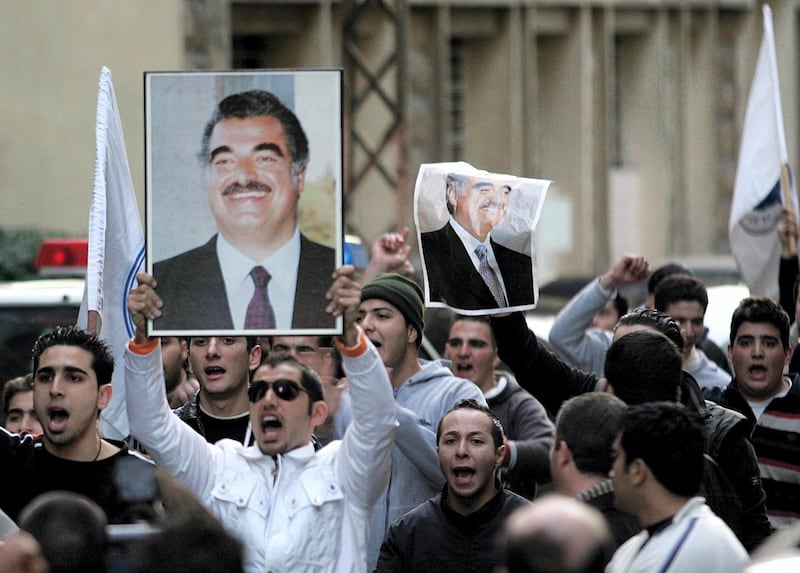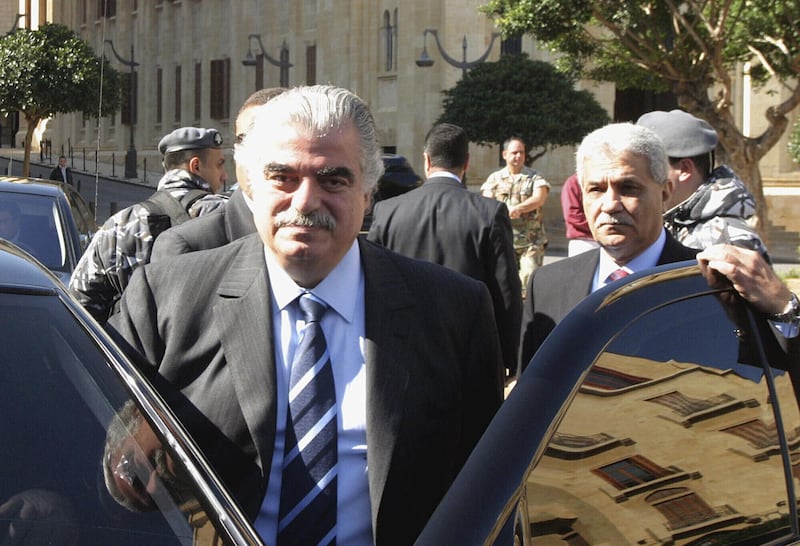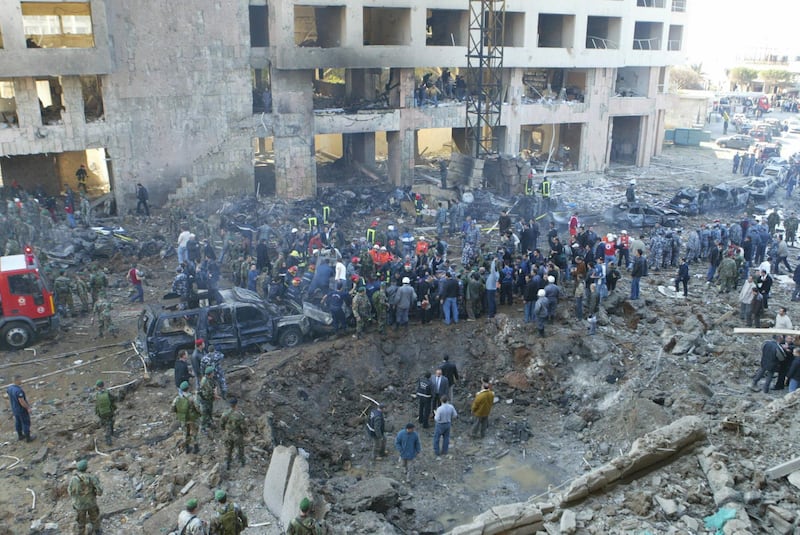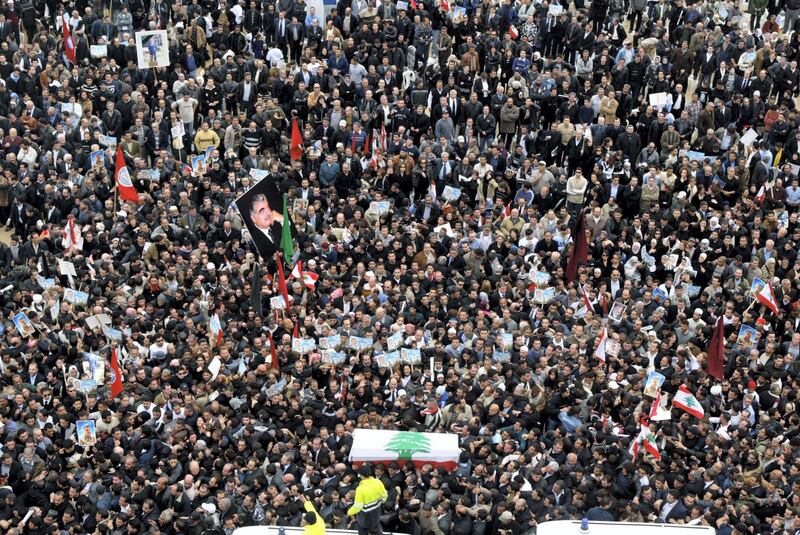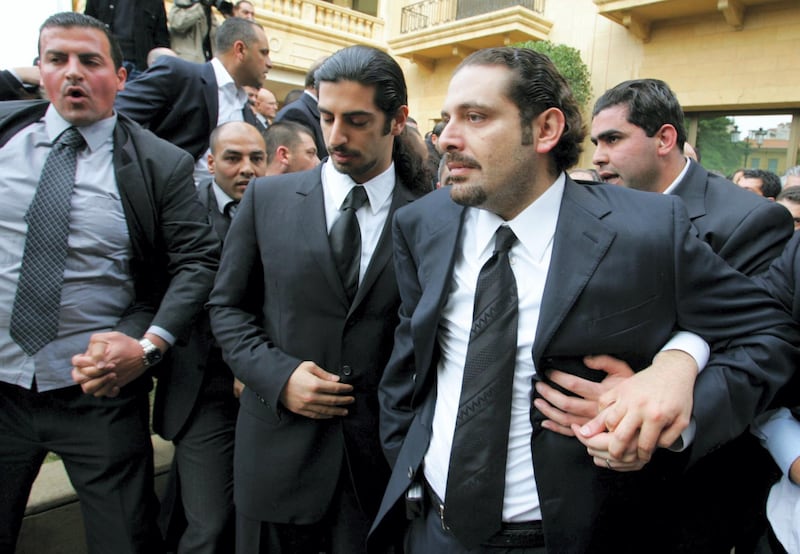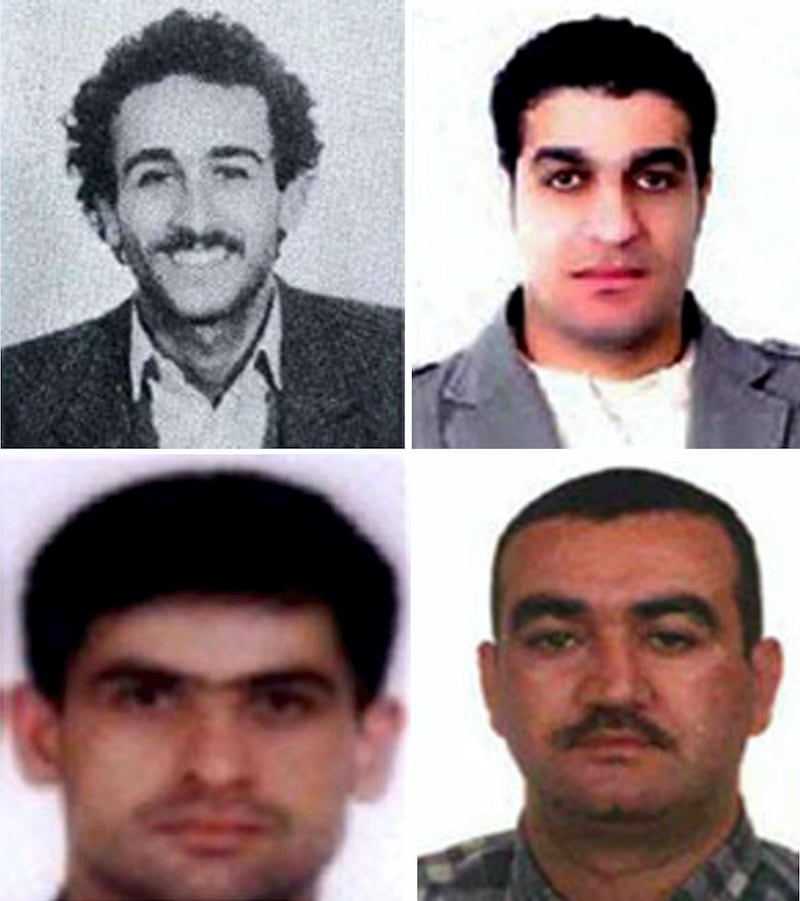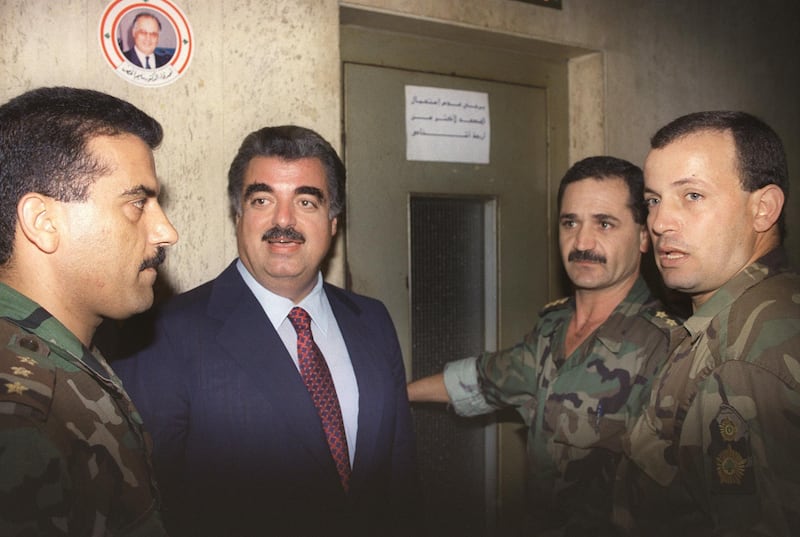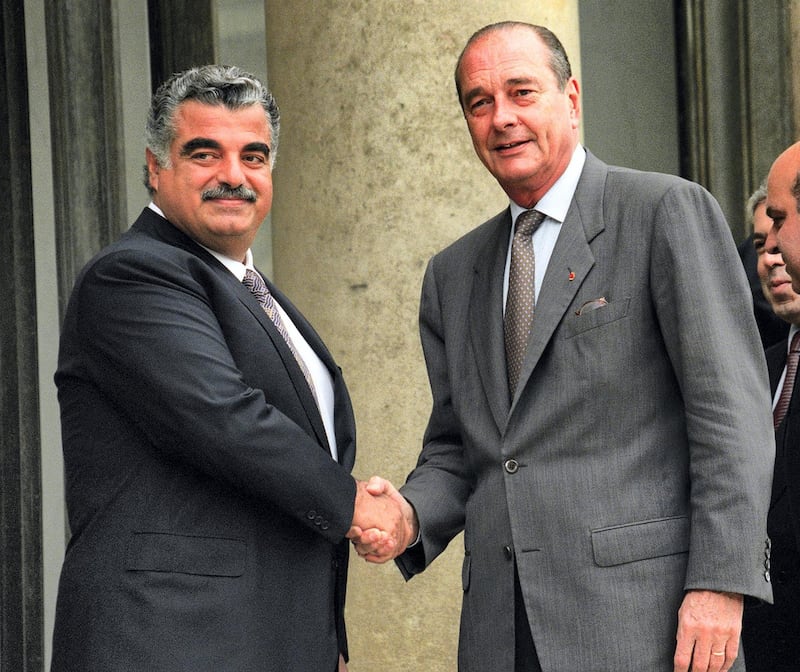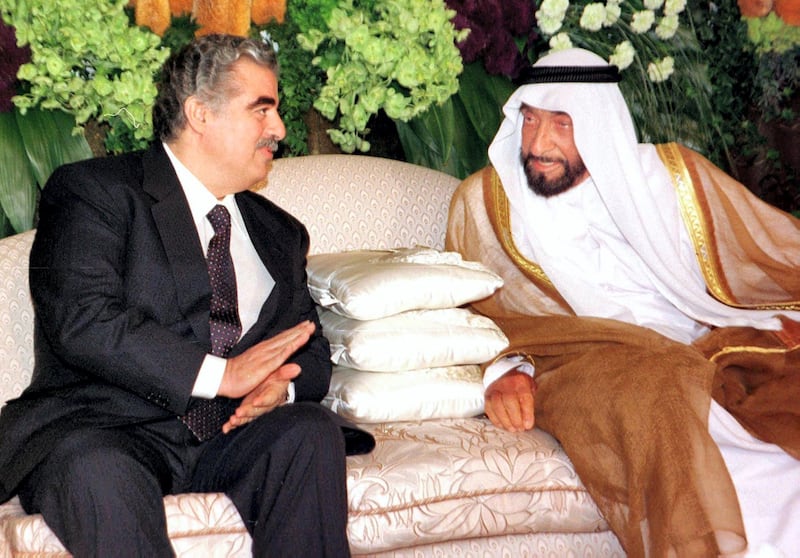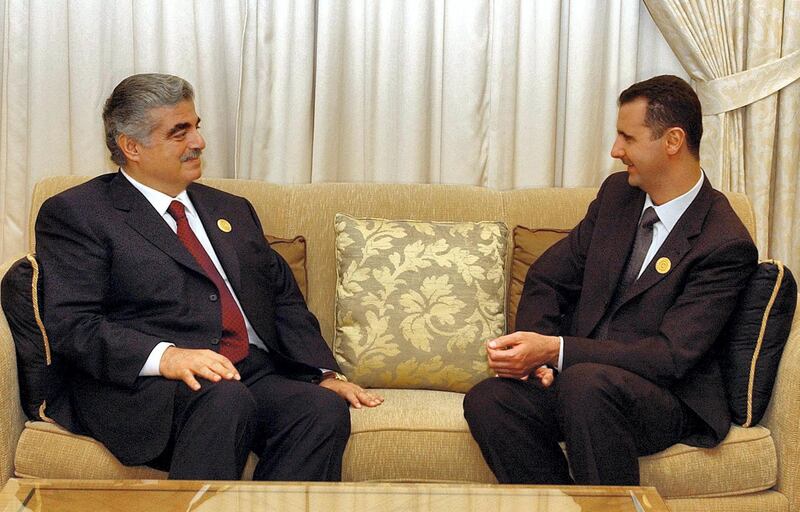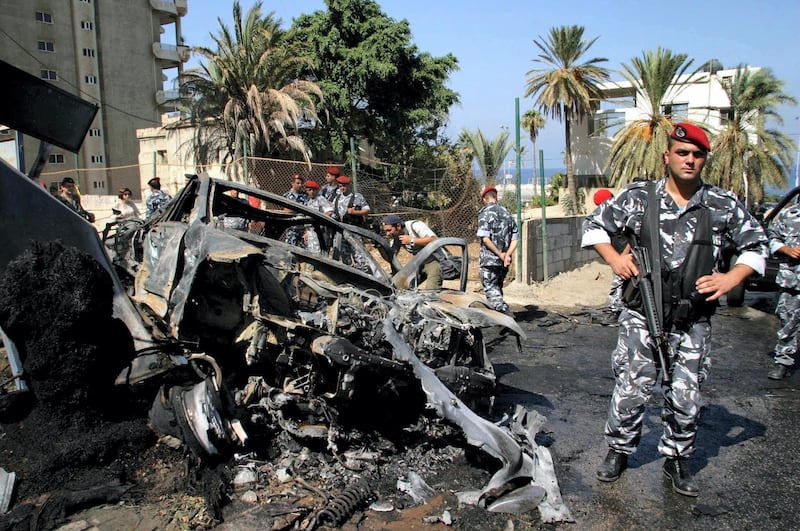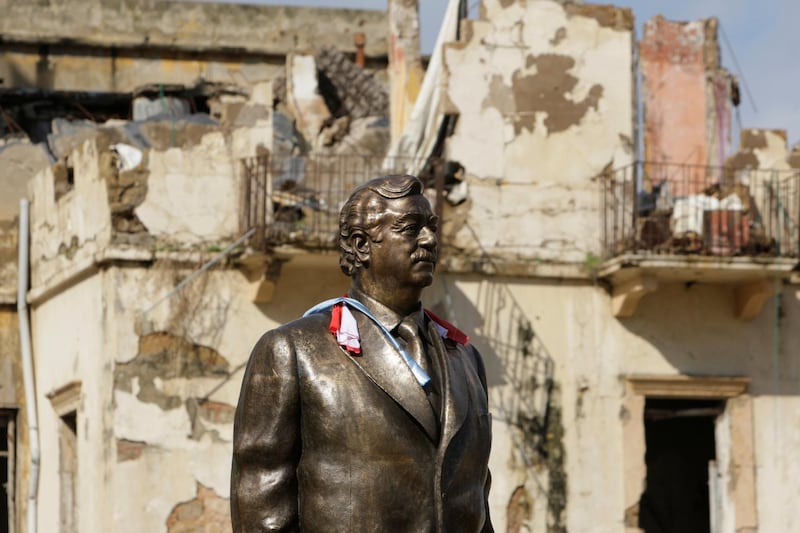A UN tribunal investigating the 2005 assassination of former Lebanese prime minister Rafik Al Hariri said on Wednesday that it expected to close its main case against Hezbollah operatives in the next 12 months.
The Special Tribunal for Lebanon has been largely ceremonial since the case started nine years ago.
Most of the tribunal’s initial supporters, particularly European powers, focused on accommodating Iran, with Hezbollah refusing to hand over four suspects in the main case.
The case against the four suspects of Hezbollah, one of whom is dead, is being tried in their absence by the tribunal in the Netherlands.
The 11th annual report of the tribunal said it expected by February next year to finish all work in the case, “following the rendering of the trial judgment, including the sentencing phase before the trial chamber and any appellate proceedings".
“To this end, the appeals chamber has already devoted substantial effort to ready itself for appeals that may be filed in order to promote its expeditious resolution,” the report said.
The tribunal indicted four Hezbollah operatives in mid-2011 for the February 2005 lorry-bomb blast near Beirut’s seafront, which killed Mr Hariri and 21 others.
It charged all four with conspiracy aimed at committing a terrorist act.
The tribunal, which opened in January 2014, also indicted a fifth suspect in July 2015, Hezbollah supporter Hassan Merhi, on similar charges.
Demonstrations broke out against the Syrian regime after the killing, setting the scene for the Cedar Revolution, and the international pressure that forced Syrian regime forces out of Lebanon in April 2005.
The tribunal also charged the two most senior Hezbollah operatives among the five suspects, Mustafa Badreddine and Salim Ayyash, with committing a terrorist act by means of an explosive device, and with intentional homicide.
Badreddine was jailed in Kuwait for attacks in 1983 on the French and US embassies there but escaped in 1990.
In 2016, he was killed in Syria. A year later, the Israeli chief of staff said Badreddine’s killing was an inside job carried out by Hezbollah. Hezbollah said that was a lie.
In September 2019, the tribunal indicted Ayyash on new charges related to bomb attacks that took place between 2004 and 2005 on Druze politician Marwan Hamadeh, veteran leftist Georges Hawi, and Elias Al Murr, who was defence minister at the time.
Mr Hamadeh and Mr Al Murr survived but Mr Hawi was killed.
The tribunal said it would be “advancing the proceedings” in the case of the three politicians within the next 12 months.
“The pre-trial judge will oversee the preparation of the case for trial,” the report said.
It said other chambers would “adjudicate any preliminary motions and interlocutory appeals, respectively.”
